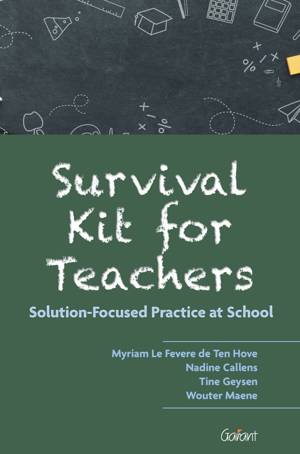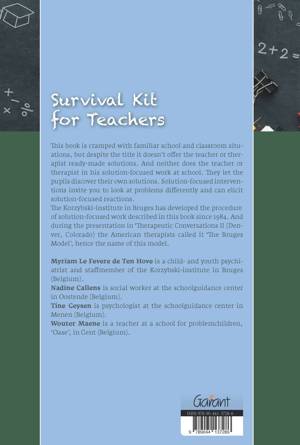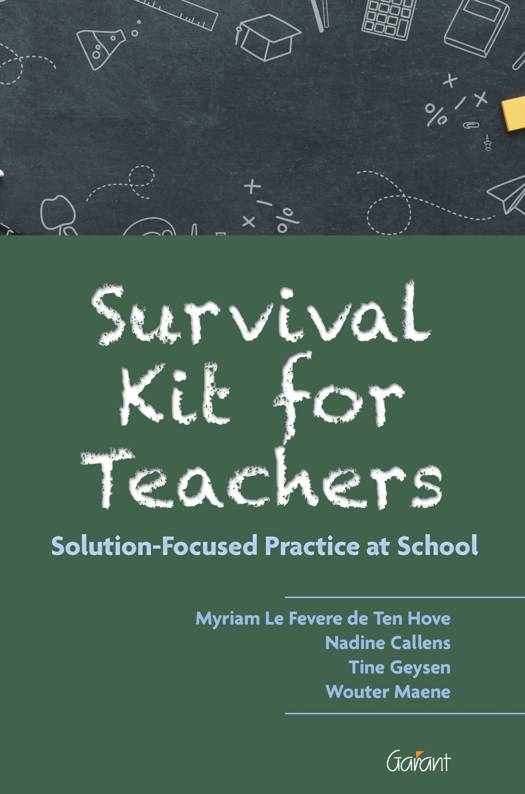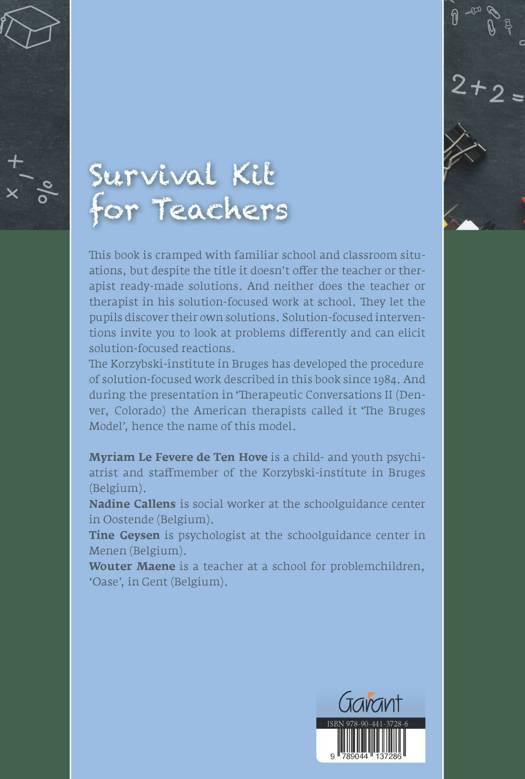
Je cadeautjes zeker op tijd in huis hebben voor de feestdagen? Kom langs in onze winkels en vind het perfecte geschenk!
- Afhalen na 1 uur in een winkel met voorraad
- Gratis thuislevering in België vanaf € 30
- Ruim aanbod met 7 miljoen producten
Je cadeautjes zeker op tijd in huis hebben voor de feestdagen? Kom langs in onze winkels en vind het perfecte geschenk!
- Afhalen na 1 uur in een winkel met voorraad
- Gratis thuislevering in België vanaf € 30
- Ruim aanbod met 7 miljoen producten
Zoeken


Survival Kit for Teachers
Solution-Focused Practice at School
Myriam Le Fevere de Ten Hove, Nadine Callens, Tine Geysen, Wouter Maene
Paperback | Engels
€ 19,90
+ 39 punten
Omschrijving
This book is cramped with familiar school and classroom situations, but despite the title it doesn't offer the teacher or therapist ready-made solutions. And neither does the teacher or therapist in his solution-focused work at school. They let the pupils discover their own solutions. Solution-focused interventions invite you to look at problems differently and can elicit solution-focused reactions.
The Korzybski-institute in Bruges has developed the procedure of solution-focused work described in this book since 1984. And during the presentation in 'Therapeutic Conversations II (Denver, Colorado) the American therapists called it 'The Bruges Model', hence the name of this model.
Myriam Le Fevere de Ten Hove is a child- and youth psychiatrist and staffmember of the Korzybski-institute in Bruges (Belgium). Nadine Callens is social worker at the schoolguidance center in Oostende (Belgium). Tine Geysen is psychologist at the schoolguidance center in Menen (Belgium). Wouter Maene is a teacher at a school for problemchildren, 'Oase', in Gent (Belgium).
The Korzybski-institute in Bruges has developed the procedure of solution-focused work described in this book since 1984. And during the presentation in 'Therapeutic Conversations II (Denver, Colorado) the American therapists called it 'The Bruges Model', hence the name of this model.
Myriam Le Fevere de Ten Hove is a child- and youth psychiatrist and staffmember of the Korzybski-institute in Bruges (Belgium). Nadine Callens is social worker at the schoolguidance center in Oostende (Belgium). Tine Geysen is psychologist at the schoolguidance center in Menen (Belgium). Wouter Maene is a teacher at a school for problemchildren, 'Oase', in Gent (Belgium).
Specificaties
Betrokkenen
- Auteur(s):
- Uitgeverij:
Inhoud
- Aantal bladzijden:
- 162
- Taal:
- Engels
Eigenschappen
- Productcode (EAN):
- 9789044137286
- Verschijningsdatum:
- 10/02/2020
- Uitvoering:
- Paperback
- Afmetingen:
- 160 mm x 240 mm

Alleen bij Standaard Boekhandel
+ 39 punten op je klantenkaart van Standaard Boekhandel
Beoordelingen
We publiceren alleen reviews die voldoen aan de voorwaarden voor reviews. Bekijk onze voorwaarden voor reviews.










